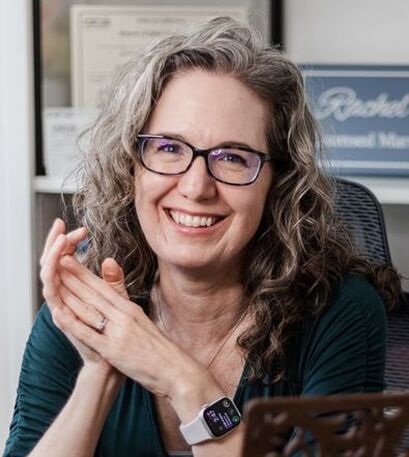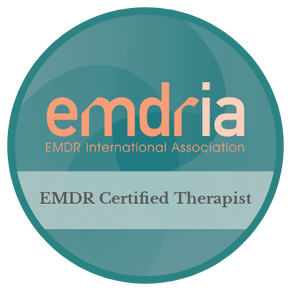|
In this blog post I address my psychotherapist colleagues, though I believe it would also be beneficial for clients and others to take a look at and learn from as well. -Rachel I've seen discussions in online psychotherapist groups recently about current events like the Charlottesville rally and the presidential pardon of Joe Arpaio. In these groups, some therapists have encouraged their colleagues to specifically check in with clients who are people of color (POC) about these issues. This seems appropriate to me because part of our responsibility as clinicians is to broach difficult subjects, and race is certainly one of them. It doesn't matter what our particular political views are, but it does matter what our clients think, feel, and experience. White therapists in particular have a responsibility to create an environment where POC clients feel safe to open up. I was surprised to find some other therapists in these groups disagree with the need to check in with POC clients and/or derail the focus away from race. (I was even more surprised when the administrators of one group deleted a black therapist’s thread and removed her from the group). It seems clear to me there is work to be done in our profession about how to initiate conversations on race because this is a real issue that affects many of our clients directly. The personal is political. Here are some of the arguments I heard online from therapists as reasons not to bring up issues of race in session:
1) It’s not OK to “push my agenda” onto my clients. 2) If I make assumptions about clients based on their race it means I’m being racist. 3) I only talk about issues my clients bring up in session; I shouldn't start conversations about other things. Let’s take a look at each of these points and see how they don't hold up upon further examination: 1) It’s not OK to “push my agenda” onto my clients. I agree. We should remain objective and not try to sway clients to one side of an issue or another. Allow me to suggest a way for therapists to be objectively curious about political or social issues with their clients: “There’s been a lot of stuff going on in the news lately. How has that been affecting you, if it has?” In my experience, clients respond to this question in one of two ways. They either take a strong exhale and say: “Yes, let me tell you about it.” Or they say something like: “No, I don’t really follow the news.” I’ve never heard a client say they were offended I asked. If they don't want to talk about current events, we move on to other issues that are more pressing for the client. 2) If I make assumptions about clients based on their race it means I’m being racist. You make assumptions about your clients all the time. We all do. It's because we’re human, and that’s what humans do. It’s best to acknowledge this and be aware of it because denying it won’t help your clients open up about issues that are affecting them. You’re not acting racist if you notice and comment on the racial differences between you and your clients. In fact, your clients may feel relieved if you bring it up. Not sure? Ask a POC friend how they would feel if a white clinician initiated a conversation about the elephant in the room that is race instead of putting the burden on them to talk about it. 3) I only talk about issues my clients bring up in session; I shouldn't start conversations about other things. Here’s the thing: Therapy involves a power differential. As much as some of us try to even out that difference, if a client comes to see me at my office they are on my turf. Oftentimes, I also have a higher level of education. And I’m white, with all the inherent privilege that entails. I think this argument is a cop out. It’s a way for us white therapists to remain comfortable and not have to talk about things that might make us feel icky. “No, you're wrong,” you might be thinking, “That’s not true because I talk about uncomfortable things with my clients all the time.” To that I say: Great, I’m glad you have experience with it. If race is also a topic you feel uncomfortable with, I encourage you to step outside your comfort zone. Take a leadership role in session and bring it up. Accept the responsibility that you are the one in the room who holds more power in the therapeutic relationship. Your clients may not know if you're a safe person to talk to about race. You have nothing to lose by opening this door, and you may gain a new way to connect with your clients. Listen, I understand if you're feeling hesitant to bring up race. I've been there, and I still feel apprehensive sometimes. I was assigned my first black client at a hospice counseling internship a couple of years ago. When I discussed the case in group supervision, my supervisor suggested I ask the client what her thoughts were about having a white person as a therapist. At the time, I couldn’t imagine bringing up the topic of race for all the reasons mentioned above. Wouldn’t that mean I was being racist? Shouldn’t I act like race doesn’t matter and we are all equal? Isn’t it good to be colorblind? And isn’t that how my client would want me to behave? (It didn’t occur to me to simply ask my client what she wanted.) All of these questions unfortunately bypassed the reality of the situation. I don’t remember if I addressed the issue of race directly with this client. If it did come up, I'm sure I felt awkward about it. It’s hard to do new things; and it’s also necessary to try. The more I talk about race now, the less awkward it feels. I do make mistakes, and that's OK. I apologize to clients if I realize my ignorance or inexperience have gotten in the way of our work together. Another thing I've started to do is educate myself on racial issues. I've come to understand it's my responsibility to do the work of learning and not the job of POCs to teach me. If you're interested as well, here are some good places to begin:
If not now, when? Comments are closed.
|
AuthorRachel Moore, LMFT, is a Licensed Marriage & Family Therapy in San Diego, CA. Rachel helps writers, artists, musicians, and other creative types overcome anxiety and trauma. She is certified in EMDR therapy and also trained in Brainspotting. Archives
December 2023
Categories
All
|
Rachel Moore, LMFT
Licensed Marriage & Family Therapist MFT #102826
rachel(at)rachelmoorecounseling.com
www.rachelmoorecounseling.com
619-577-4514
Licensed Marriage & Family Therapist MFT #102826
rachel(at)rachelmoorecounseling.com
www.rachelmoorecounseling.com
619-577-4514
Address:
3232 4th Avenue
San Diego, CA 92103
3232 4th Avenue
San Diego, CA 92103
(Remote video sessions also available for residents of California or Montana)
We are committed to providing a safe, affirming, and inclusive therapeutic space for all ages, races, gender identities, sexual orientations, national origins, relationship statuses, health statuses, disabilities, ethnicities, and religions.
If you are in crisis, assistance is available 24/7 at:
San Diego Access & Crisis Line
888-724-7240
National Suicide Prevention Line
Call or text: 988
If you are in crisis, assistance is available 24/7 at:
San Diego Access & Crisis Line
888-724-7240
National Suicide Prevention Line
Call or text: 988


 RSS Feed
RSS Feed

